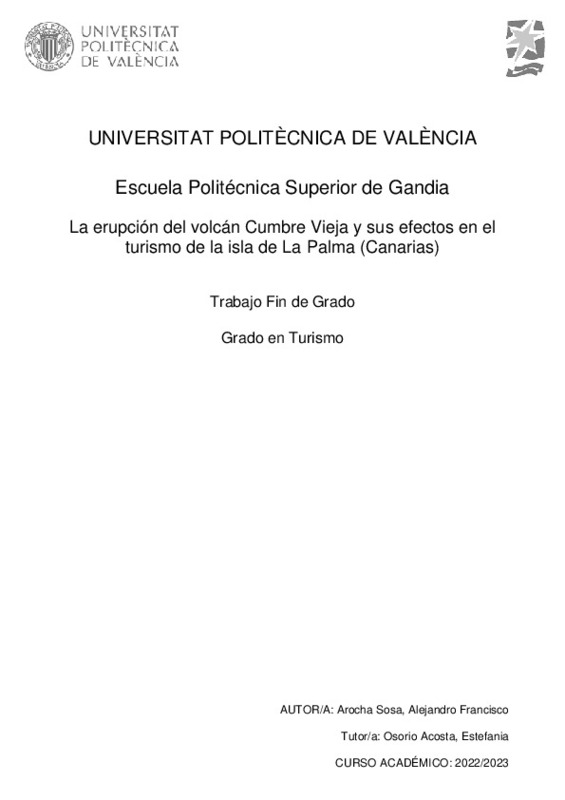JavaScript is disabled for your browser. Some features of this site may not work without it.
Buscar en RiuNet
Listar
Mi cuenta
Estadísticas
Ayuda RiuNet
Admin. UPV
La erupción del volcán Cumbre Vieja y sus efectos en el turismo de la isla de La Palma (Canarias)
Mostrar el registro completo del ítem
Arocha Sosa, AF. (2023). La erupción del volcán Cumbre Vieja y sus efectos en el turismo de la isla de La Palma (Canarias). Universitat Politècnica de València. http://hdl.handle.net/10251/195969
Por favor, use este identificador para citar o enlazar este ítem: http://hdl.handle.net/10251/195969
Ficheros en el ítem
Metadatos del ítem
| Título: | La erupción del volcán Cumbre Vieja y sus efectos en el turismo de la isla de La Palma (Canarias) | |||
| Otro titulo: |
|
|||
| Autor: | Arocha Sosa, Alejandro Francisco | |||
| Director(es): | ||||
| Entidad UPV: |
|
|||
| Fecha acto/lectura: |
|
|||
| Resumen: |
[ES] Las Islas Canarias pertenecen a un archipiélago de naturaleza volcánica. La Palma es una de estas islas, y en el año 2021 sufrió las consecuencias de su origen: una erupción volcánica, fenómeno natural que no ha ...[+]
[EN] The Canary Islands belong to an archipelago of volcanic nature. La Palma is one of these islands, and in the year 2021 it suffered the consequences of its origin: a volcanic eruption, a natural phenomenon that has not ...[+]
|
|||
| Palabras clave: |
|
|||
| Derechos de uso: | Reserva de todos los derechos | |||
| Editorial: |
|
|||
| Titulación: |
|
|||
| Tipo: |
|
Localización
recommendations
Este ítem aparece en la(s) siguiente(s) colección(ones)
-
EPSG - Trabajos académicos [5004]
Escuela Politécnica Superior de Gandia







